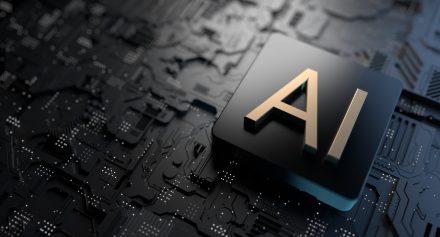Lauren Lee '06, head of product and content marketing at The Weather Company, shares her insights into what we could expect from AI going forward.

One of my favorite things about Elon has always been its study abroad program. Its creative approach to exposing students to the world was authentically unique, and I took full advantage of it.
The summer of 2004, while on a tour bus outside London with my study abroad group, I circled my thumb around the original iPod for the first time. Fast forward 19 years and it’s clear the domino effect one piece of technology had on my generation. Can you imagine a life without the iPhone and all that came from it?
Every generation has it — a key technological advancement that draws praise, and often angst, for its potential to shape future generations. Ironically, today’s piece of technology that will arguably reshape our society was first introduced roughly 50 years before I first pressed play on an iPod. Yes, we’ve been living with artificial intelligence for decades, but it’s only recently, thanks to the latest advancements in generative AI — more specifically natural language processing — that it’s entered the mainstream zeitgeist.
Professionally, I’ve been working alongside AI for the better part of eight years. And like an up-and-coming neighborhood, I’ve witnessed firsthand how the value, perception and skepticism of AI has evolved from consumer and enterprise points of view. Many AI researchers recently coined this the “golden decade” where the past 10 years have produced the greatest level of progress and potential.
Every generation has it — a key technological advancement that draws praise, and often angst, for its potential to shape future generations.
Drawing from my experience, here are a few lessons I’ve learned from the “golden decade:”
- AI isn’t singular. You can find numerous definitions of AI, but I like IBM’s take that “at its simplest form, artificial intelligence is a field, which combines computer science and robust datasets, to enable problem-solving.” When you think of AI as a field and not as a singular piece of technology, it should expand how you think about its application. For example, some common consumer- facing AI applications include speech recognition (“Hey, Alexa…”), image recognition (Apple Face ID) and natural language processing (ChatGPT). Realizing AI comes in many forms and solves different problems supports my next point.
- Identify the challenge, then the technology. In my point of view, all technology exists to assist us in solving problems, big and small. While it’s good to experiment, if you throw the wrong type of AI at a problem, you’ll just learn you wasted time. The best thing you can do is to take time to learn the strengths and weaknesses of different types of AI. That way when you are presented with a challenge, big or small, you’ll be able to solve it more confidently, and likely in record time.
- Get your hands dirty. With that in mind, there are numerous ways to learn and try AI. If you haven’t already, give ChatGPT a whirl. Have it write your next social post or your up- coming family holiday card message. Professionally, be open to applications that can help make your and your team’s lives easier. Whether helping with content ideation, process efficiency or customer engagement, a clear value proposition of AI is its ability to augment the way we work. But it will take some trial and error and hyperfocus on the problem to solve.
- It’s healthy to be skeptical. “Augment” was a deliberate choice of words above, rather than “replace.” Although I do agree job loss is inevitable in this transformation, I believe the benefits outweigh the drawbacks. New jobs, new industries and enhanced ways of working and living are a few reasons why I feel a healthy sense of cautious optimism. Beyond job replacement angst, the other valid skepticism is the potential for bias. AI is trained by humans. Humans are inherently biased. Elon’s own Assistant Professor of Communication Design Chris (Cheng) Chen studies algorithmic bias and trust in AI and hopes to educate users about the nature of training data. We’re lucky to have thought leaders in our community committed to illuminating and instilling ethical practices in this new field.
- This is not a fad. It’s not hyperbole to say that AI will change every aspect of our lives. In a way, it already has.
There is no doubt the next decade holds even greater potential than its golden predecessor, but it will require collaboration and cooperation across industries, governments and consumers to transform in a way that betters our society for the long run.
 Lauren Lee ’06 is the head of product and content marketing at The Weather Company, an IBM business, focused on driving awareness and adoption of The Weather Company’s industry-leading AI and weather-based advertising solutions.
Lauren Lee ’06 is the head of product and content marketing at The Weather Company, an IBM business, focused on driving awareness and adoption of The Weather Company’s industry-leading AI and weather-based advertising solutions.


